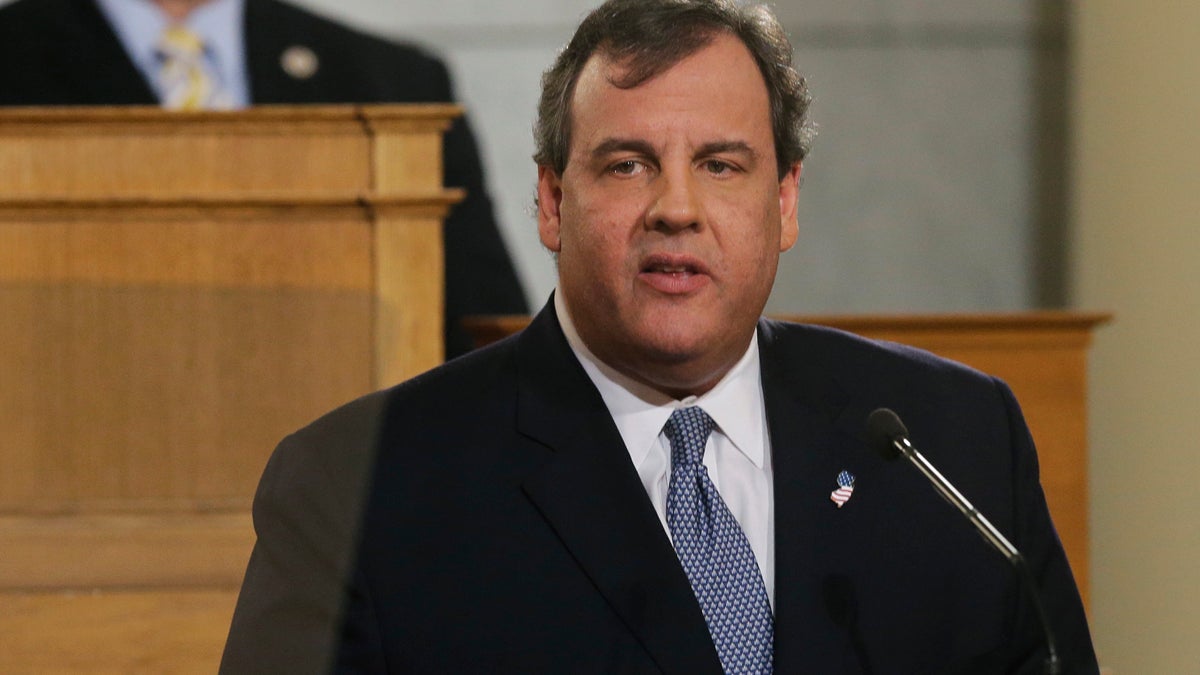New Jersey’s fiscal condition rated worst in U.S.

N.J. Gov. Chris Christie is shown delivering his State of the State address on Tuesday, Jan. 14, 2014, at the Statehouse in Trenton. (AP Photo/Mel Evans, file)
In his State of the State address earlier this week, New Jersey Gov. Chris Christie proclaimed “the state of the state is good, and getting better.”
A new study from George Mason University shows that, at least in terms of the state’s “fiscal condition,” there’s a long way to go. It ranked New Jersey dead last — 50th among the 50 states — in “state fiscal condition.”
The dubious distinction is not a surprise, said Veronique de Rugy, a senior research fellow at the Mercatus Center at George Mason University.
“Anyone who has followed New Jersey is aware that New Jersey in not very fiscally sustainable. It has a pretty big fiscal problem, it has a lot of out-migration, it has a lot of pension problems,” she said.
New Jersey is not alone, de Rugy said, noting that almost all states face problems with funding their public pensions. She said she hopes rankings like this help inform lawmakers and prompt conversations about the challenges states face and how to address them.
Rutgers University Economics professor Joseph Seneca said the state got into these problems over a long time. “There’s no easy quick fix for these [challenges] particularly what the paper calls long-run solvency issues with respect to these long-term obligations,” such as pension and health care costs, he said.
New Jersey’s Legislature and the governor have made efforts to improve the pension predicament.
“The state has recognized, certainly in the last several budgets, the need to address these issues,” Seneca said. “Particularly these long-run obligations of the state to make changes in both reducing costs, increasing contributions to it and making contributions to the pension fund annually in each of the last two budgets.”
While these problems are well-known and “the list of states towards the bottom of the list are familiar ones — California, New York, Connecticut, New Jersey, Pennsylvania, Illinois,” Seneca said. “It does indicate again the importance for fiscal prudence, for making significant inroads on long-term debt and long-term unfunded liabilities.”
Seneca called them “nasty and difficult problems to deal with,” and said many of them “involve contractual obligations that have been in good faith agreed to and it’s going to be a hard — the metaphor of an aircraft carrier, turning it around — it’s going to take significant time.”
“Some initial steps, and good steps have been made in New Jersey but this is a problem with a long-term horizon for a solution,” he said. “Especially these unfunded liabilities stretching out in the future.”
The study ranked Delaware 37th and Pennsylvania 42nd on their fiscal condition.
WHYY is your source for fact-based, in-depth journalism and information. As a nonprofit organization, we rely on financial support from readers like you. Please give today.




